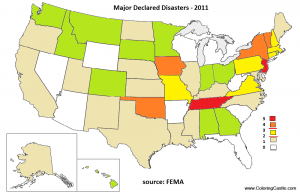Divorce is a major life-change. It’s a complicated and emotional process that takes time to work through. It’s not surprising that it also can have a great effect on your personal insurance coverage. Here are answers to some commonly asked questions about how divorce affects your auto and home insurance. You should discuss your individual situation with your agent and your attorney.
I Want to Take my Spouse Off My Auto Insurance
Until your divorce is final, your insurance agent should not remove anyone’s name from the policy without their written consent. An insurance policy is a contract. Your agent is responsible to BOTH parties to the contract. Each has the same rights under the policy. A professional agent will not only want to make sure that both parties remain covered; they are obligated to honor each person’s policy rights.
We Own Separate Vehicles. Can’t We Get Separate Insurance?
Maybe, but you should consult your attorney first. Maine “joint property” laws may render the registration immaterial. If the property is considered “joint property”, you both should maintain one policy until the divorce is final, and the property is separately owned. Your attorney can help you with this issue.
The Insurance Bills Go to My Spouse. Will My Policy Cancel if They Aren’t Paid?
Yes. That’s why it’s important that your agent knows how to reach BOTH of you; you need to keep them updated. If payment of bills is a problem, discuss this with your attorney; they may be able to arrange for timely payment.
My Spouse Isn’t Reimbursing Me for Their Share. Why Should I Pay for Their Insurance?
It’s important to keep your coverage in force. The best way to do that is to pay the premium that you are billed. Otherwise your policy could cancel – and you would both lose coverage. Don’t “cut off your nose to spite your face”. Talk to your attorney about how to settle the financial details.
I’ve Moved Out. Does Our Homeowners Policy Still Cover My Stuff?
It depends. It is very important that you contact your agent to discuss your individual situation.
My Spouse and I Can’t Agree on Anything.
Sometimes, it is best to let your attorneys deal with these insurance issues. Give your agent permission to talk with them. Have them contact your agent.
If you are looking for a Greater Portland Maine insurance agency that understands how divorce affects your insurance, and can help you protect your assets now and later, contact Noyes Hall & Allen Insurance at 207-799-5541. Our agency represents several insurance companies, so we can offer one-stop insurance shopping.



